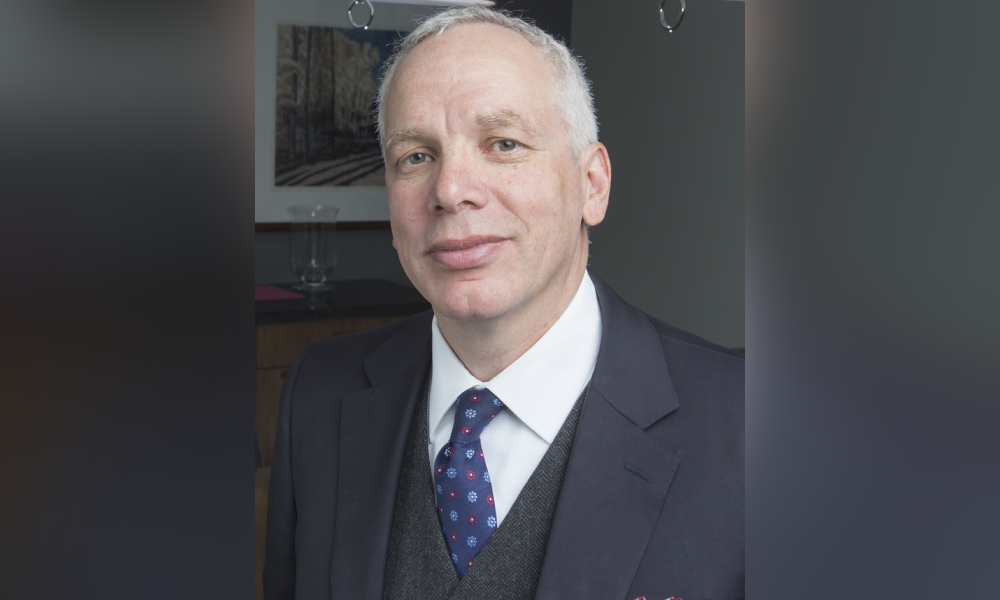
Coroners routinely opt not to investigate deaths in remote Indigenous communities in-person: report

Thirteen years after the Goudge Report found Ontario’s coroners routinely fail to attend death scenes in remote First Nations communities, the Court of Appeal has ruled the family of a four-year-old boy from Sandy Lake First Nation, who died of complications from strep throat, can proceed with an action against Ontario and its coroners for their allegedly flawed investigation into the death.
Brody Meekis died May 7, 2014, in the fly-in community 594 km northwest of Thunder Bay, Ont. The coroner assigned to the case, Dr. Wojciech Aniol, did not travel to Sandy Lake during the investigation and declined to recommend an inquest. Also respondents in the action were the Chief Coroner for Ontario, Dr. Dirk Huyer, and the Regional Supervising Coroner, Dr. Michael Wilson.
“This case is very much about breaking new ground in terms of the accountability of the Office of the Chief Coroner and its officials for death investigations,” says Julian Falconer, who represented Meekis’ parents, grandparents and siblings, who brought the appeal.
Meekis’ family members brought a civil claim in 2016, accusing Dr. Aniol of misfeasance in public office, Dr. Huyer and Dr. Wilson of negligent supervision and Ontario of discrimination based on race, ethnic origin and on-reserve residency, in breach of s. 15 of the Charter.
In April 2019, the respondents brought a motion to strike the claim in its entirety, under r. 21.01(1)(b) of the Rules of Civil Procedure. Superior Court Justice John Fregeau granted the motion, finding the claim disclosed no reasonable cause of action.
With reasons written by Justice Lorne Sossin, the Court of Appeal panel, also including Justices Russell Juriansz and Katherine van Rensburg, allowed the appeal in part. The Court found Justice Fregeau erred in striking the misfeasance and Charter claims but left his ruling on negligent supervision.
“This is a very sad and tragic death – a four-year-old dies because antibiotics are not available,” says Falconer. “And the grief of the family, as pled in the claim, was significantly aggravated by virtue of a corners system in which the investigating coroner neither attends the scene, nor takes basic investigative steps to ensure that this death doesn't simply go overlooked or ignored.”
In 2006, during the Justice Stephen Goudge’s Inquiry into Pediatric Forensic Pathology in Ontario, Falconer represented a coalition of the Nishnawbe Aski Nation and Aboriginal Legal Services, to help examine how death investigations proceed in Northern Ontario. Sandy Lake First Nation is an affiliate of Nishnawbe Aski Nation.
The inquiry took a systemic review of pediatric forensic pathology in Ontario from 1981 to 2001, looking at policies, practices, procedures, accountability, quality control measures and oversight mechanisms.
“We wanted to bring it home at the time that the corners are totally MIA in the north,” Falconer says. “No one even knew – as community members or community leaders – what a coroner was.”
Justice Stephen Goudge was on the Ontario Court of Appeal from 1996 until 2014. In his report on the inquiry, Justice Goudge recommended: “Steps should be taken to enhance the likelihood that investigating coroners will attend the death scene.” Being there in-person improved the quality of investigations, allowed coroners to communicate with families and provided the opportunity to build relationships with affected communities, said Goudge.
In their statement of claim, the appellants drew a link between Meekis’ case and the “well-documented pattern of neglect of on-reserve First Nations communities by the [Office of the Chief Coroner for Ontario],” said the Court of Appeal decision.
“The status quo is not acceptable,” said Goudge in his report. While coroners may often be unable to attend death scenes, because of weather or distance, their non-attendance should not be treated as the norm. “Communities are left with the perception that their deaths are less important than others to the system. That was certainly the message communicated to our Inquiry by First Nations leaders and those who work in those communities,” he said.
“You can imagine my incredulity when, six years later, they're still doing it,” says Falconer. “What that brought home to me is the sheer shamelessness of it all. That even when the light of scrutiny in a Royal Commission report is shone on the issue, that they would blithely continue this discriminatory practice of not showing up.”
“Flash forward to 2021. I mean, what are we coping with as a country right now? Well, what we're coping with as a country is our sad ability to look the other way in the wake of deaths of thousands of Indigenous children, who occupy unmarked graves across the country. And so, the devaluing of Indigenous children is front and centre in society right now.”